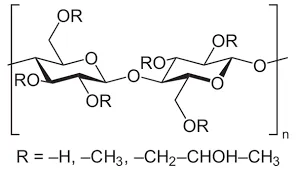
Ное . 23, 2024 08:59 Back to list
hpmc grades and uses
HPMC Grades and Their Uses A Comprehensive Overview
Hydroxypropyl Methylcellulose (HPMC) is a semi-synthetic polymer derived from cellulose, widely recognized for its versatile properties and various applications across different industries. The unique features of HPMC, such as its ability to form gels, emulsify, and stabilize, make it an invaluable ingredient in pharmaceuticals, food products, cosmetics, and construction materials. This article delves into the different grades of HPMC, their specific properties, and how they are utilized effectively in various fields.
Understanding HPMC Grades
HPMC is categorized into several grades based on the degree of substitution, viscosity, and application. The primary grades include HPMC K, HPMC E, and HPMC M. Each grade serves a distinct purpose and is chosen based on the requirements of the specific application.
1. HPMC K (K Grade) This grade is characterized by its high viscosity and gel-forming ability. HPMC K is primarily used in pharmaceutical formulations, especially in sustained-release tablets. Its gelation properties enhance the drug's release profile, ensuring a prolonged therapeutic effect. This makes it an essential polymer in the pharmaceutical industry for controlled drug delivery systems.
2. HPMC E (E Grade) HPMC E is known for its excellent water solubility and lower viscosity compared to HPMC K. It is commonly utilized in various food products as a thickening agent and stabilizer. In bakery applications, it helps maintain moisture and improve texture. Furthermore, HPMC E is also favored in cosmetic formulations, where it serves as a binder and film-forming agent, providing desirable properties such as smoothness and spreadability.
3. HPMC M (M Grade) This grade features medium viscosity and is particularly effective in applications requiring a balance between thickening and stabilizing properties. HPMC M is frequently used in the construction industry, especially in tile adhesives and dry-mixed mortars. It enhances the workability of the mixtures while also ensuring good adhesion and water retention, vital for construction applications.
Applications Across Industries
hpmc grades and uses

HPMC's diverse properties have led to its adoption in several industries
- Pharmaceuticals The controlled release and thickening properties of HPMC make it a popular choice in tablet formulations, coatings, and as a controlled-release agent in various pharmaceutical products.
- Food Industry As a food additive, HPMC is employed to improve texture, improve shelf life, and act as a stabilizer in sauces, dressings, and bakery products. Its ability to retain moisture in food products helps in enhancing textural appeal.
- Cosmetics and Personal Care HPMC is widely used in lotions, creams, and gels. Its film-forming capabilities and emulsion stability contribute to the smooth texture and effective performance of beauty products.
- Construction The use of HPMC in construction materials aids in enhancing the workability and adhesion properties of cement-based products. It plays a crucial role in ensuring consistency and quality in construction applications.
Conclusion
The various grades of Hydroxypropyl Methylcellulose, including HPMC K, HPMC E, and HPMC M, present unique advantages that cater to the specific needs of different industries. Its remarkable versatility and functional properties make it a sought-after component in pharmaceuticals, food, cosmetics, and construction. As innovation continues in these fields, the demand and applications of HPMC are expected to expand further, solidifying its position as an essential ingredient across numerous sectors. Understanding the differences in HPMC grades allows manufacturers to select the most suitable type for their formulations, ultimately leading to enhanced product performance and consumer satisfaction.
-
Versatile Hpmc Uses in Different Industries
NewsJun.19,2025
-
Redispersible Powder's Role in Enhancing Durability of Construction Products
NewsJun.19,2025
-
Hydroxyethyl Cellulose Applications Driving Green Industrial Processes
NewsJun.19,2025
-
Exploring Different Redispersible Polymer Powder
NewsJun.19,2025
-
Choosing the Right Mortar Bonding Agent
NewsJun.19,2025
-
Applications and Significance of China Hpmc in Modern Industries
NewsJun.19,2025







